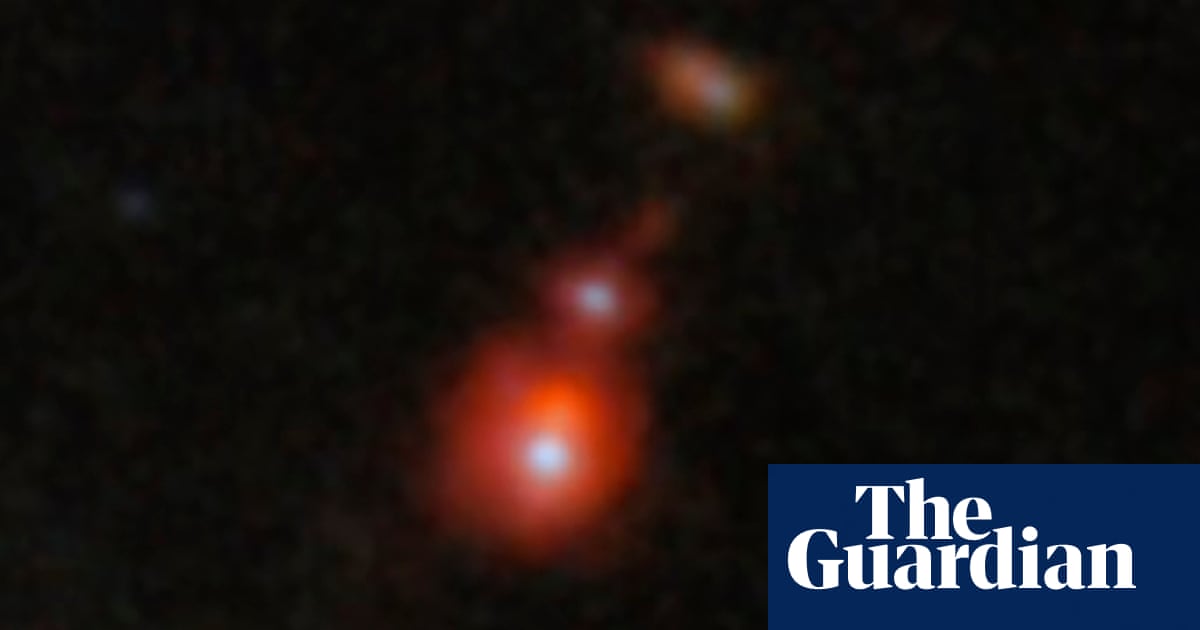A pair of black holes has been observed colliding for the first time in the ancient universe. Observations from the James Webb Space Telescope reveal the merger of two galaxies and the supermassive black holes at their centers when the universe was just 740 meters old, 20th of its current age.
The discovery that massive mergers appear to be common in the infant universe could help explain how supermassive black holes like the one at the center of the Milky Way grew to such massive proportions.
Professor Roberto Maiolino, an astrophysicist at the University of Cambridge and a member of the team behind the observations, said: “One of the problems we have in cosmology is explaining how these black holes are able to grow so large. In the past we were always too quick to talk about the subject or born big. Another possibility is that they grow too fast by merging.
It is not yet clear whether the merger of galaxies – which is known to have happened – and the black holes at the cores will become a single cosmic sink. Recent models have suggested that one of them will be kicked into space as a “wandering black hole”.
Recent observations have harnessed the Webb Telescope’s ability to reach into the far reaches of the cosmos and have provided the first glimpse of intergalactic connections in the distant past.
In the merging process, black holes absorb large amounts of matter and release high amounts of energy, and this activity has unique spectral features that allow astronomers to identify them. The activity revealed a collision with a system called ZS7, one of two black holes estimated to be 50 times the mass of the Sun.
“The mass of the other black hole may be similar, although this second black hole is more difficult to measure because it is buried in dense gas,” Maiolino said.
Subsequent observations show that about a third of the black holes detected at this time are in the process of merging. “This could be a real channel for the rapid growth of primordial black holes,” he said.
University College London cosmologist Professor Andrew Pontson, who was not involved in the research, said: “One of the major gaps in our cosmic history book is where black holes millions or billions of times the size of the Sun came from. . Are they somehow born bigger, or do they first coalesce from smaller black holes to form giants? From this new source [the Webb telescope] Indirect, but it helps to suggest an important role for black hole collisions.”
In the future, scientists hope to be able to make direct measurements of ancient collisions using next-generation gravitational wave detectors, including the Laser Interferometer Space Antenna. (Lisa) mission, which was recently approved by the European Space Agency.
The findings are published in the Monthly Notices of the Royal Astronomical Society.

